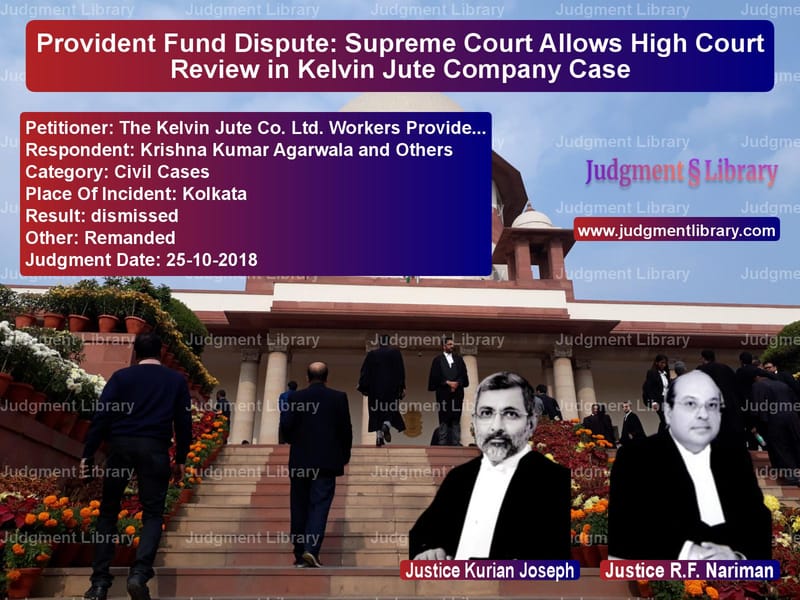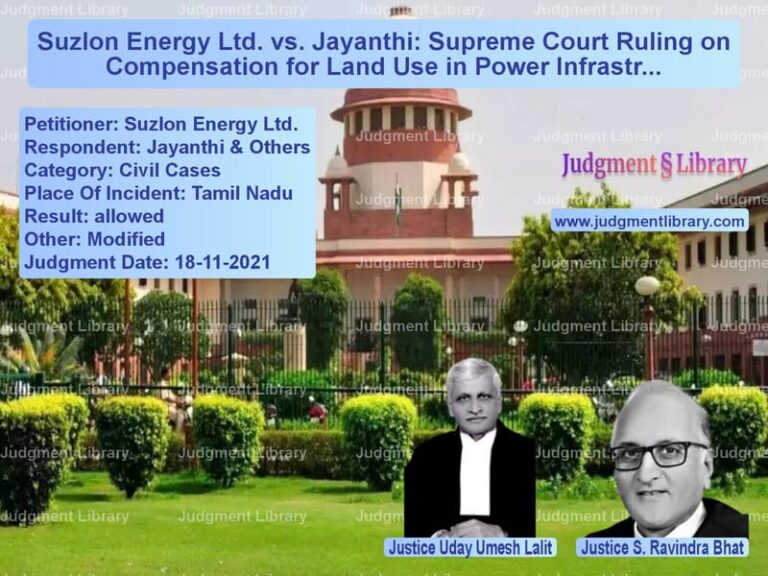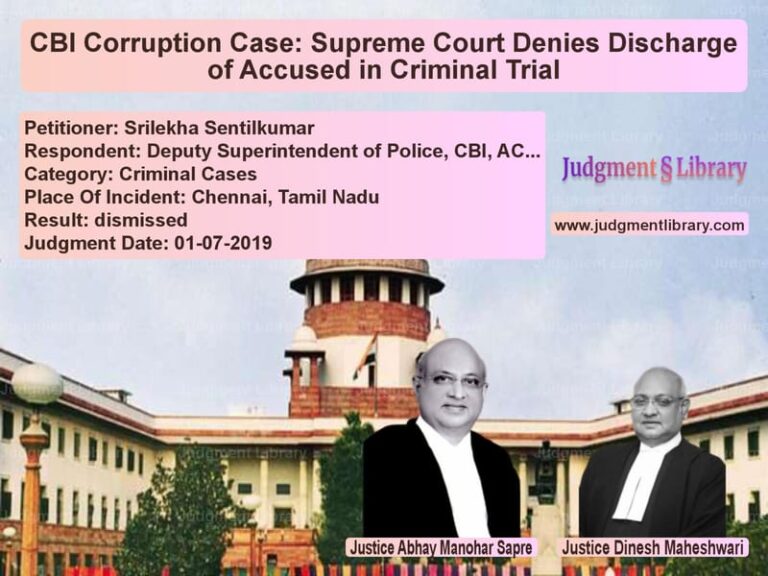Provident Fund Dispute: Supreme Court Allows High Court Review in Kelvin Jute Company Case
The Supreme Court of India recently ruled on a long-standing dispute involving the provident fund dues of workers at Kelvin Jute Company Ltd. The case revolved around the transfer of funds from Kelvin Jute’s Trust to Waverly Trust, which was mandated by earlier judgments of the Calcutta High Court. The core issue was whether the company and its new management, Trend Vyapaar Ltd., were liable for any outstanding dues beyond the amount they had already deposited.
Background of the Case
The dispute arose when Kelvin Jute Company Ltd. merged into Trend Vyapaar Ltd. in 2001 under a scheme framed by the Board for Industrial and Financial Reconstruction (BIFR). Prior to this, a controversy had been ongoing regarding the provident fund dues owed to workers, managed through the Kelvin Jute Provident Fund Trust. The Calcutta High Court had ruled in 2002 that an amount of Rs. 2 crore (plus interest) should be transferred to the Waverly Trust to settle these dues.
Legal Proceedings Before the Supreme Court
The matter reached the Supreme Court following the dismissal of civil appeals by the insurance company. The Supreme Court had initially ruled on January 21, 2016, affirming the Calcutta High Court’s judgment and directing that the provident fund dues be paid.
Key Issues Addressed
- Whether Trend Vyapaar Ltd. was liable for further payments beyond the Rs. 1.95 crore it had already deposited.
- Whether a review of the 2002 High Court order was possible, given allegations of fraud.
- Whether the funds should be released to the Waverly Trust pending the resolution of further legal claims.
Petitioners’ Arguments (Kelvin Jute/Trend Vyapaar Ltd.)
The petitioners, representing Kelvin Jute’s successor company Trend Vyapaar Ltd., argued that:
- Their liability was capped at Rs. 1.95 crore as per the terms of the BIFR scheme.
- They had already deposited Rs. 1.95 crore with the Provident Fund Commissioner in compliance with the Supreme Court’s order.
- The 2002 High Court judgment was based on fraudulent claims and should be subject to review.
- The obligation to pay beyond Rs. 1.95 crore did not exist under legal provisions.
Respondents’ Arguments (Waverly Trust & Workers’ Representatives)
The respondents, including representatives of the Waverly Trust and workers’ union, contended that:
- The High Court ruling had conclusively determined the company’s liability, and no further modifications were permissible.
- The provident fund amounts had been wrongfully utilized by Kelvin Jute and had to be repaid.
- Any claim of fraud was an afterthought meant to delay compliance with the court’s order.
- The Supreme Court’s previous order had already established the liability, and no further relief should be granted to the petitioners.
Supreme Court’s Observations and Ruling
The Supreme Court carefully examined the arguments and past rulings, ultimately concluding that:
- It could not entertain an application for modification or review of the 2002 High Court judgment.
- However, it granted the petitioners the liberty to approach the High Court for a review based on allegations of fraud.
- It directed that Rs. 1.95 crore, which had already been deposited, should be transferred to the Waverly Trust.
- The High Court was free to examine any review petition filed within 30 days.
Impact of the Judgment
This ruling has significant implications:
- Clarification on Employer Liability: The Supreme Court emphasized that companies cannot escape past liabilities unless conclusively ruled otherwise.
- Reinforcement of Provident Fund Obligations: The judgment upholds workers’ rights to receive dues and ensures that companies do not misappropriate such funds.
- Scope for Legal Review in Fraud Cases: By allowing the petitioners to file a review in the High Court, the judgment ensures that if fraud was involved, it can be rectified.
Conclusion
The Supreme Court’s ruling in Kelvin Jute Company Ltd. Workers Provident Fund vs. Krishna Kumar Agarwala reinforces the principle that provident fund dues must be settled in accordance with legal mandates. While granting limited relief to the petitioners by allowing a review petition, the Court has ensured that the workers’ entitlements remain protected. The ruling provides a balanced approach, ensuring both accountability and a mechanism for legal redress in cases of alleged fraud.
Petitioner Name: The Kelvin Jute Co. Ltd. Workers Provident Fund and Anr..Respondent Name: Krishna Kumar Agarwala and Others.Judgment By: Justice Kurian Joseph, Justice R.F. Nariman.Place Of Incident: Kolkata.Judgment Date: 25-10-2018.
Don’t miss out on the full details! Download the complete judgment in PDF format below and gain valuable insights instantly!
Download Judgment: The Kelvin Jute Co. vs Krishna Kumar Agarwa Supreme Court of India Judgment Dated 25-10-2018.pdf
Direct Downlaod Judgment: Direct downlaod this Judgment
See all petitions in Debt Recovery
See all petitions in Public Interest Litigation
See all petitions in Employment Disputes
See all petitions in Judgment by Kurian Joseph
See all petitions in Judgment by Rohinton Fali Nariman
See all petitions in dismissed
See all petitions in Remanded
See all petitions in supreme court of India judgments October 2018
See all petitions in 2018 judgments
See all posts in Civil Cases Category
See all allowed petitions in Civil Cases Category
See all Dismissed petitions in Civil Cases Category
See all partially allowed petitions in Civil Cases Category







